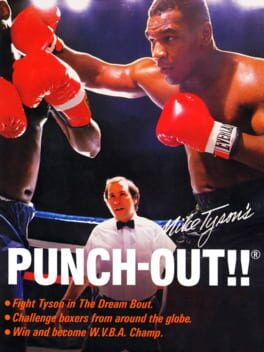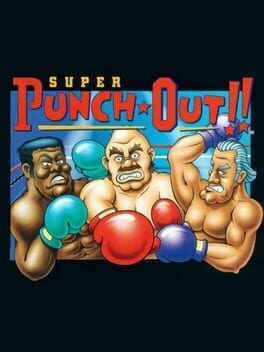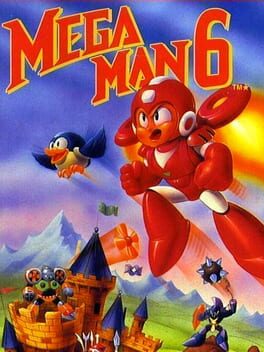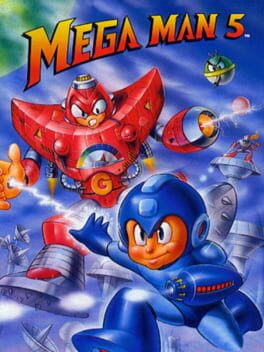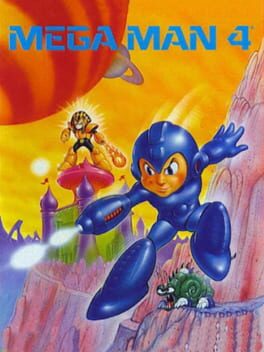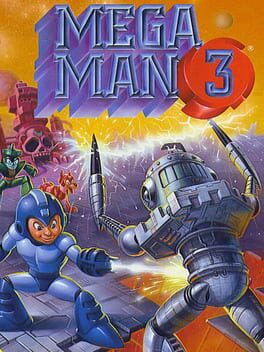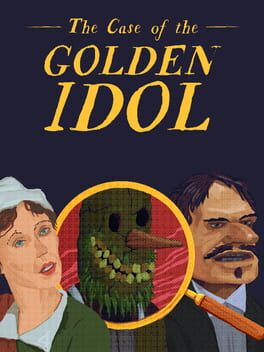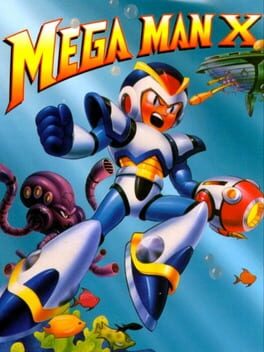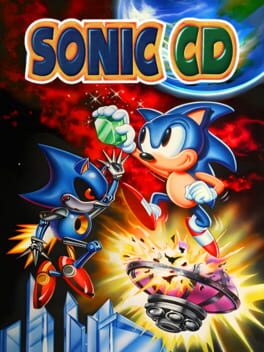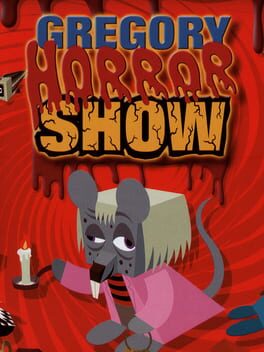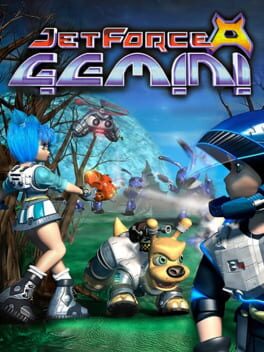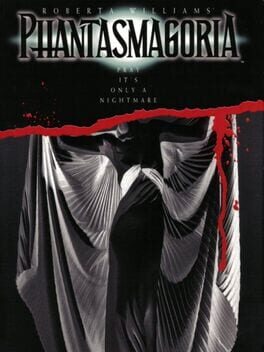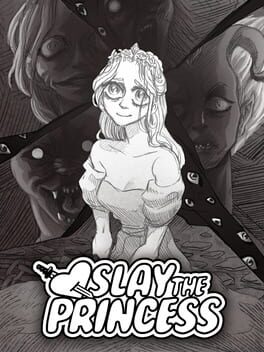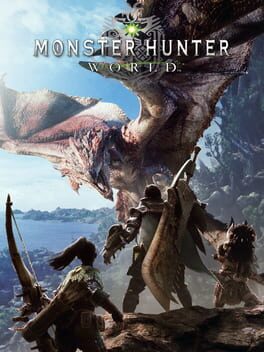RadMaximilian
I bought Punch-Out from the Wii U e shop when they offered some classic NES titles for a few bucks a pop.
Sure, that was the version that replaced Mike Tyson with Mr. Dream, but I'm just gonna put this here anyway.
My precious memory from the NES version of Punch-Out was when I got stuck at King Hippo. My struggle caught the attention of my dad and my brothers who pitched in, in an attempt to help me figure out how I was supposed to get even a single clean hit in. Eventually beating him felt glorious, and it was a moment that made me fall in love with the series. I've never actually beaten Mike Tyson/Mr. Dream, but I'm sure that will happen some day.
Sure, that was the version that replaced Mike Tyson with Mr. Dream, but I'm just gonna put this here anyway.
My precious memory from the NES version of Punch-Out was when I got stuck at King Hippo. My struggle caught the attention of my dad and my brothers who pitched in, in an attempt to help me figure out how I was supposed to get even a single clean hit in. Eventually beating him felt glorious, and it was a moment that made me fall in love with the series. I've never actually beaten Mike Tyson/Mr. Dream, but I'm sure that will happen some day.
1994
I find that Super Punch-Out offers a different experience compared to its predecessor on the NES and successor on the Wii.
Super Punch-Out has more similarities to the arcade games, seeing as the star punch has been replaced by the super meter, previously seen in the arcade titles.
Super rewards agressive play, much more so compared to MTPO and POWii, in which defensive play is generally more optimal. Super allows for the player to get more free hits in on the opponent, if they can get around the opponent's guard. An aggressive player will most likely find that they can make their opponents dizzy from the repeated punches, which allows for a brief window of time that results in an instant knockdown with a super punch.
Super Punch-Out is tough, but I find myself coming back to this game every now and then. I've only beaten the game once, but it is extremely satisfying to come back and discover new tricks and strategies for each opponent.
Super Punch-Out has more similarities to the arcade games, seeing as the star punch has been replaced by the super meter, previously seen in the arcade titles.
Super rewards agressive play, much more so compared to MTPO and POWii, in which defensive play is generally more optimal. Super allows for the player to get more free hits in on the opponent, if they can get around the opponent's guard. An aggressive player will most likely find that they can make their opponents dizzy from the repeated punches, which allows for a brief window of time that results in an instant knockdown with a super punch.
Super Punch-Out is tough, but I find myself coming back to this game every now and then. I've only beaten the game once, but it is extremely satisfying to come back and discover new tricks and strategies for each opponent.
1993
Mega Man 6 ended up being my favorite NES Mega Man title.
I love the Robot Master designs in this one, and I think that most bosses have a good level of challenge without them feeling unfair even without using the weapon they're weak against. The Wily bosses in Mega Man 6 are the easiest ones so far, but I prefer easy bosses over ones where you're forced to play the waiting game until a small window of opportunity presents itself where you only get to deal a miniscule amount of damage.
I found myself using more of Mega Man's arsenal this time around compared to 5, which I think is great. Beat is once again an optional unlock, but I never found a good use for him this time around either, which is unfortunate.
I liked the new adapter upgrades, as the usual Rush upgrades had started getting stale. The Rush Power Adapter has its few use cases, however this is the most uninteresting of the pair. The Rush Jet Adapter meanwhile is busted and I honestly love it for it. Having a jet pack is simply awesome. I unfortunately missed the Energy Balancer, but I love that it's there. Not having to go into the pause menu before picking up a weapon charge pickup in order to switch to a weapon that needs charging is a godsend. I wish that this feature would come pre-unlocked in all games, as this merely has an effect on the player's convenience, and doesn't make the game necessarily easier.
The music is fine this time around. No particular bangers come to mind, but the game has a generally nice aesthetic. I loved the stage theming, and the game features some really nice sprite work.
The quality of the NES Mega Man titles have gone up significantly since the first release. While the road has been pretty bumpy up to 6 with some questionable design choices, I ultimately think that the general quality has steadily been going up. Mega Man 6 was surprisingly good, and if I were to pick one title to revisit in the future purely for the fun of it, I would most definitely pick 6 any day of the week.
Now it's time for the next generation of Mega Man with Mega Man 7 on the SNES!
I love the Robot Master designs in this one, and I think that most bosses have a good level of challenge without them feeling unfair even without using the weapon they're weak against. The Wily bosses in Mega Man 6 are the easiest ones so far, but I prefer easy bosses over ones where you're forced to play the waiting game until a small window of opportunity presents itself where you only get to deal a miniscule amount of damage.
I found myself using more of Mega Man's arsenal this time around compared to 5, which I think is great. Beat is once again an optional unlock, but I never found a good use for him this time around either, which is unfortunate.
I liked the new adapter upgrades, as the usual Rush upgrades had started getting stale. The Rush Power Adapter has its few use cases, however this is the most uninteresting of the pair. The Rush Jet Adapter meanwhile is busted and I honestly love it for it. Having a jet pack is simply awesome. I unfortunately missed the Energy Balancer, but I love that it's there. Not having to go into the pause menu before picking up a weapon charge pickup in order to switch to a weapon that needs charging is a godsend. I wish that this feature would come pre-unlocked in all games, as this merely has an effect on the player's convenience, and doesn't make the game necessarily easier.
The music is fine this time around. No particular bangers come to mind, but the game has a generally nice aesthetic. I loved the stage theming, and the game features some really nice sprite work.
The quality of the NES Mega Man titles have gone up significantly since the first release. While the road has been pretty bumpy up to 6 with some questionable design choices, I ultimately think that the general quality has steadily been going up. Mega Man 6 was surprisingly good, and if I were to pick one title to revisit in the future purely for the fun of it, I would most definitely pick 6 any day of the week.
Now it's time for the next generation of Mega Man with Mega Man 7 on the SNES!
1992
Not sure if I'm getting better at Mega Man or if Mega Man 5 is the easiest game in the series as of its release.
The game is surprisingly generous with its 1-Up drops, and a majority of the bosses are a complete joke. Like, why is there a post-Robot Masters boss whose only attack pattern is walking back and forth? Mega Man 5 also has the easiest set of Robot Masters as of yet, with only a few of them posing a considerable challenge, at least when you understand their attack pattern.
The game has a few cheap "gotcha"-moments within its levels, but I honestly thought that the level designs were all-around pretty good in this one. A bit on the simpler side perhaps, but they were nice to plow through. Gravity Man's stage was a real highlight with the gravity flipping mechanic.
There was only one optional upgrade this time around in the form of Beat the bird. Collecting letters in each stage in order to unlock him was not as compelling as trying to find hidden routes like in Mega Man 4. Most of the letters are placed in plain sight, while the one in Stone Man's stage was hidden behind a breakable wall. I honestly wish that all of the letters were hidden in a similar manner, but oh well.
However, I didn't find much utility in using Beat -- or any of the unlockable weapons for that matter -- which was a bit disappointing. One of the great joys of a Mega Man game for me is discovering how the weapons and upgrades can make my life easier during a stage or a boss. I tried to experiment with my new weapons, but ultimately came to the conclusion that they were more effort than they were worth, and that the Mega Buster is simply better 90% of the time.
Mega Man 5 is simply more Mega Man, for better or for worse. Nothing major is added, but nothing major is lost either. It's a fine game, and I think I would recommend this one as an entry point for people who are curious about the classic Mega Man games. However, I personally prefer 4 over this one.
The game is surprisingly generous with its 1-Up drops, and a majority of the bosses are a complete joke. Like, why is there a post-Robot Masters boss whose only attack pattern is walking back and forth? Mega Man 5 also has the easiest set of Robot Masters as of yet, with only a few of them posing a considerable challenge, at least when you understand their attack pattern.
The game has a few cheap "gotcha"-moments within its levels, but I honestly thought that the level designs were all-around pretty good in this one. A bit on the simpler side perhaps, but they were nice to plow through. Gravity Man's stage was a real highlight with the gravity flipping mechanic.
There was only one optional upgrade this time around in the form of Beat the bird. Collecting letters in each stage in order to unlock him was not as compelling as trying to find hidden routes like in Mega Man 4. Most of the letters are placed in plain sight, while the one in Stone Man's stage was hidden behind a breakable wall. I honestly wish that all of the letters were hidden in a similar manner, but oh well.
However, I didn't find much utility in using Beat -- or any of the unlockable weapons for that matter -- which was a bit disappointing. One of the great joys of a Mega Man game for me is discovering how the weapons and upgrades can make my life easier during a stage or a boss. I tried to experiment with my new weapons, but ultimately came to the conclusion that they were more effort than they were worth, and that the Mega Buster is simply better 90% of the time.
Mega Man 5 is simply more Mega Man, for better or for worse. Nothing major is added, but nothing major is lost either. It's a fine game, and I think I would recommend this one as an entry point for people who are curious about the classic Mega Man games. However, I personally prefer 4 over this one.
1991
The Mega Buster is an immensely appreciated addition to the series. This title also adds some optional branching paths within the stages. Some contain goodies such as E-tanks and extra lives, while others reward you with entirely new tools for your arsenal. Stumbling upon the Balloon upgrade by complete accident, and gaining the option to utilize it during the final stages during the game to make some platforming challenges easier felt incredibly rewarding.
Mega Man 4 contains both some of the easiest and the toughest Robot Masters I've fought as of yet. Toad Man for example is a complete joke, while Ring Man was a tough nut to crack, even with the weapon he's weak to.
Once again, I feel like the conclusion of Mega Man 4 falls flat due to some incredibly poor boss designs. Wily phase 2 almost made me rage quit until I found out that you can detonate the Drill Bombs on command. This made the fight much easier, but you are still forced to play the waiting game due to the boss's movements being random, and you have to wait for the optimal opportunity to strike if you can't afford to take any hits. Meanwhile, Wily's final phase was so easy that I question why it even was there to begin with.
With the ability to both slide and charge shots, I feel like Mega Man is starting to resemble Mega Man X, which I think is a great thing to see. Experiencing the progression of the series myself is a great time, and I can't wait to see what Mega Man 5 has to offer.
Mega Man 4 contains both some of the easiest and the toughest Robot Masters I've fought as of yet. Toad Man for example is a complete joke, while Ring Man was a tough nut to crack, even with the weapon he's weak to.
Once again, I feel like the conclusion of Mega Man 4 falls flat due to some incredibly poor boss designs. Wily phase 2 almost made me rage quit until I found out that you can detonate the Drill Bombs on command. This made the fight much easier, but you are still forced to play the waiting game due to the boss's movements being random, and you have to wait for the optimal opportunity to strike if you can't afford to take any hits. Meanwhile, Wily's final phase was so easy that I question why it even was there to begin with.
With the ability to both slide and charge shots, I feel like Mega Man is starting to resemble Mega Man X, which I think is a great thing to see. Experiencing the progression of the series myself is a great time, and I can't wait to see what Mega Man 5 has to offer.
1990
I enjoyed Mega Man 3 up to the Doc-Robot stages where it felt like the game took a turn for the worse. The robot master stages of this game are great, and finding out the optimal boss order by myself felt rewarding. None of the robot master fights felt like BS, at least with the correct weapon in my arsenal.
Too bad I can't say the same for the Doc-Robot fights. Bosses with unavoidable patterns are the bane of my existance, and the Air Man fight is a prime example of this. Dying and having to go back to the start of the stage for trying to experiment with the optimal weapon to use, merely because the tornadoes decided to form an unavoidable wall did not feel great at all.
The final boss was a disappointment as well. It was just bad.
This was however the first NES Mega Man game I've finished without the use of save states, and I consider that to be a great personal achievement, so yay!
Too bad I can't say the same for the Doc-Robot fights. Bosses with unavoidable patterns are the bane of my existance, and the Air Man fight is a prime example of this. Dying and having to go back to the start of the stage for trying to experiment with the optimal weapon to use, merely because the tornadoes decided to form an unavoidable wall did not feel great at all.
The final boss was a disappointment as well. It was just bad.
This was however the first NES Mega Man game I've finished without the use of save states, and I consider that to be a great personal achievement, so yay!
I've been itching for a mystery game like this since I finished Obra Dinn, and The Case of the Golden Idol certainly scratched that itch.
I plowed through this game with a couple of friends, and sharing the aha-moments once all the pieces were starting to fall into place was fantastic. A large part of the mysteries can be solved with enough trial and error, but we tried to challenge ourselves by only placing names that we were 90% sure were going in the right spot.
Looking forward to the sequel!
I plowed through this game with a couple of friends, and sharing the aha-moments once all the pieces were starting to fall into place was fantastic. A large part of the mysteries can be solved with enough trial and error, but we tried to challenge ourselves by only placing names that we were 90% sure were going in the right spot.
Looking forward to the sequel!
1993
1993
2003
My relationship with Gregory Horror Show harkens back to when I was very young and stumbled upon a YouTube channel that had uploaded all of the episodes of the anime.
The unsettling nature of the show that bordered on horror without actually being grotesque captured me and I binged all three seasons in one night.
Then, I simply forgot the name of the series, but it would still manage to occupy my headspace for years to come. Years went by where I'd try to find the show again, but to no avail. When I was in my late teens, the name "Gregory" randomly popped up in my head one night when I was trying to sleep, and I hurriedly hopped out of my bed to see if I'd be able to find the anime on YouTube once more, which I did. Not only did I find the anime that I'd searched for so long, I also found out that it had a game made by Capcom, and I knew that I had to have it in my collection. It must have been fairly unrecognized at the time, because I got it for real cheap, and now it's one of my most prized possessions in my PS2 library.
But that's just my personal anecdote. What did I actually think about the game?
It's not mind-blowing or anything, but it is a neat experience. The goal of the game is to deliver 12 souls to Death. In return, he'll help you escape from the hotel. The game is split up in chapters -- labelled as "Nights" -- and the game progresses to a new chapter for every 3 souls delivered. At least 3 new guests move in for every chapter in the game. Some guests are split up into 2 entities, since they move in together, but they only come with 1 soul.
The game centers around sneaking around and spying on the guests. While you're observing them from a keyhole, they'll talk to themselves about their weakness, or a weakness of another guest. It's up to the player to collect enough information in order to exploit their weakness and steal their soul. I like the fact that a guest carrying a soul usually tries to run away from the player until they have their soul stolen. Once their soul is stolen, they become hostile and chase the player instead. This means that the more you progress, the more hostile entities have to be taken into consideration. You're pretty much helpless against your enemies and the best way to deal with them is to run to safety. Each guest has a pre-defined daily schedule that they follow, and by observing them at specific times, an entry is added in your notebook in your room, which helps you catalogue their daily activities. Some guests simply have to be encountered at a specific time and place in order to steal their soul, while others require you to have a specific item.
That's where the shop comes in. Some of these critical items can be purchased in the shop run by the hotel manager rat Gregory. Although, he doesn't sell items per se. Rather he trades goods in exchange for items and consumables found around the hotel. Items can be found on the ground or by knocking on furniture, and each item has a value measured in stars. Items in the shop can be traded for by exchanging one or several items from your inventory that is of equal or higher value. Some items can only be found once, while others are restocked and can picked up indefinitely by returning later, meaning that the player essentially has infinite resources.
Speaking of items, their purpose is to heal the player's mental gauge or status conditions. By simply running around the hotel, the player's mental gauge drops. A significant chunk of the mental gauge can be shaved off if you are caught by one of the guests as well. If it drops to 0, you go insane and have to reload a previous save. Status conditions can be inflicted by staying awake for too long, or by being caught by a guest. Health can be restored by consuming items such as herbs (they even come in green, red and yellow, nice RE-reference, Capcom), by reading books, or by sleeping. Books have the additional trait of boosting the size of your mental gauge. Status conditions can be restored by consuming medicines or by handing over a soul to Death.
Of note is that this game is fairly short. I spent about 8 hours on my first playthrough, but this can easily be expanded by trying to find all 50 books, or by filling the entire memo with the guests' daily schedules. I don't believe that you unlock anything of significance from 100% completion, but by filling the memo you unlock figures of the guests that can be observed in your room, if you like that sort of thing.
I don't think that Gregory Horror Show is a masterpiece by any means, however I usually don't take the time to write reviews as long as this, which must account for something. It is a game that I enjoyed from start to finish, and I can definitely see myself returning for another run. Highly recommended if you enjoy the level of horror found in kids' shows like Courage, and games where you have to map out people's daily schedules and plan accordingly à la moon: Remix RPG Adventure and Chulip.
The unsettling nature of the show that bordered on horror without actually being grotesque captured me and I binged all three seasons in one night.
Then, I simply forgot the name of the series, but it would still manage to occupy my headspace for years to come. Years went by where I'd try to find the show again, but to no avail. When I was in my late teens, the name "Gregory" randomly popped up in my head one night when I was trying to sleep, and I hurriedly hopped out of my bed to see if I'd be able to find the anime on YouTube once more, which I did. Not only did I find the anime that I'd searched for so long, I also found out that it had a game made by Capcom, and I knew that I had to have it in my collection. It must have been fairly unrecognized at the time, because I got it for real cheap, and now it's one of my most prized possessions in my PS2 library.
But that's just my personal anecdote. What did I actually think about the game?
It's not mind-blowing or anything, but it is a neat experience. The goal of the game is to deliver 12 souls to Death. In return, he'll help you escape from the hotel. The game is split up in chapters -- labelled as "Nights" -- and the game progresses to a new chapter for every 3 souls delivered. At least 3 new guests move in for every chapter in the game. Some guests are split up into 2 entities, since they move in together, but they only come with 1 soul.
The game centers around sneaking around and spying on the guests. While you're observing them from a keyhole, they'll talk to themselves about their weakness, or a weakness of another guest. It's up to the player to collect enough information in order to exploit their weakness and steal their soul. I like the fact that a guest carrying a soul usually tries to run away from the player until they have their soul stolen. Once their soul is stolen, they become hostile and chase the player instead. This means that the more you progress, the more hostile entities have to be taken into consideration. You're pretty much helpless against your enemies and the best way to deal with them is to run to safety. Each guest has a pre-defined daily schedule that they follow, and by observing them at specific times, an entry is added in your notebook in your room, which helps you catalogue their daily activities. Some guests simply have to be encountered at a specific time and place in order to steal their soul, while others require you to have a specific item.
That's where the shop comes in. Some of these critical items can be purchased in the shop run by the hotel manager rat Gregory. Although, he doesn't sell items per se. Rather he trades goods in exchange for items and consumables found around the hotel. Items can be found on the ground or by knocking on furniture, and each item has a value measured in stars. Items in the shop can be traded for by exchanging one or several items from your inventory that is of equal or higher value. Some items can only be found once, while others are restocked and can picked up indefinitely by returning later, meaning that the player essentially has infinite resources.
Speaking of items, their purpose is to heal the player's mental gauge or status conditions. By simply running around the hotel, the player's mental gauge drops. A significant chunk of the mental gauge can be shaved off if you are caught by one of the guests as well. If it drops to 0, you go insane and have to reload a previous save. Status conditions can be inflicted by staying awake for too long, or by being caught by a guest. Health can be restored by consuming items such as herbs (they even come in green, red and yellow, nice RE-reference, Capcom), by reading books, or by sleeping. Books have the additional trait of boosting the size of your mental gauge. Status conditions can be restored by consuming medicines or by handing over a soul to Death.
Of note is that this game is fairly short. I spent about 8 hours on my first playthrough, but this can easily be expanded by trying to find all 50 books, or by filling the entire memo with the guests' daily schedules. I don't believe that you unlock anything of significance from 100% completion, but by filling the memo you unlock figures of the guests that can be observed in your room, if you like that sort of thing.
I don't think that Gregory Horror Show is a masterpiece by any means, however I usually don't take the time to write reviews as long as this, which must account for something. It is a game that I enjoyed from start to finish, and I can definitely see myself returning for another run. Highly recommended if you enjoy the level of horror found in kids' shows like Courage, and games where you have to map out people's daily schedules and plan accordingly à la moon: Remix RPG Adventure and Chulip.
1999
1995
The final chase scene made me despise this game.
I expected a cryptic game with moon logic, and was pleasantly surprised when it wasn't. The hint button is a great addition that save me from a lot of frustration. I was expecting to be pleasantly surprised.
That was until the final scene of the game. Hours of build up for that load of bull?? It honestly soured the whole experience for me.
I expected a cryptic game with moon logic, and was pleasantly surprised when it wasn't. The hint button is a great addition that save me from a lot of frustration. I was expecting to be pleasantly surprised.
That was until the final scene of the game. Hours of build up for that load of bull?? It honestly soured the whole experience for me.
2023
An absolute banger of a game to play with a group of friends. Me and a couple of pals started of together from scratch and I've had a blast.
The only downside is how the game handles multiplayer during the story mode of the game. Mandatory assignments have to be initiated solo until the monster is discovered, after which every player except one have to leave the quest in order to team up. This combined with the unskippable cutscenes led to some complaining and groaning which could've been avoided if the game simply allowed for a smoother co-op experience during the story.
Nevertheless, Monster Hunter World is pure co-op excellence
The only downside is how the game handles multiplayer during the story mode of the game. Mandatory assignments have to be initiated solo until the monster is discovered, after which every player except one have to leave the quest in order to team up. This combined with the unskippable cutscenes led to some complaining and groaning which could've been avoided if the game simply allowed for a smoother co-op experience during the story.
Nevertheless, Monster Hunter World is pure co-op excellence
